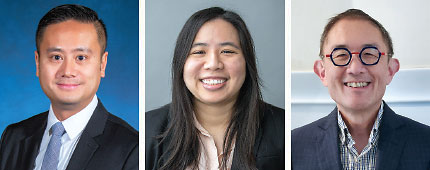The Role of C-L Psychiatry in Culturally Humble Approach to Informed Consent, Medical Decision-Making
Abstract
Cultural beliefs inform patient views on sickness, dying, and end-of-life care, and need to be taken into account in medical decision-making. This article is one of a series coordinated by APA’s Council on Consultation-Liaison Psychiatry and the Academy of Consultation-Liaison Psychiatry.

The patient’s right to make informed decisions is an ethical cornerstone in the practice of medicine. Consultation-liaison (C-L) psychiatrists can be involved in this process, particularly when the patient’s decisional capacity is questioned. It is important, however, to recognize that the existing framework for informed consent follows a Western ethnocentric perspective that may be at odds with the practices of non-Western cultural groups.
Case Study
JW was an 82-year-old Chinese American man with a history of colon cancer who was admitted to the hospital for stage IV exocrine pancreatic cancer. The members of his treatment team stated that surgical resection with chemotherapy would extend his life only minimally, and they were concerned about the patient’s understanding of his prognosis, particularly given his demands to continue his herbal medicine. Furthermore, they were troubled by the family’s insistence that his diagnosis and prognosis be withheld from the patient. The patient’s wife and son had been demanding that all surgical options be pursued and became upset when the team suggested palliative care. The team thus consulted psychiatry for a capacity assessment.
The C-L team met with the patient’s family and gained a more complete picture of the family’s cultural background and preferences about medical decision-making. Regarding the patient’s prior cancer diagnosis, the family stated that the son had similarly made treatment decisions and partially credited the patient’s recovery to the fact that he had limited understanding of his serious prognosis.
The psychiatry team’s evaluation of JW revealed no neurocognitive deficits or clear impairment in insight. JW affirmed that he wished to entrust his care to his family, but he reported worries about pain and suffering from future surgeries and hospitalizations. He also discussed his prior positive experiences with Chinese herbal medicine, which he believed had helped cure his previous cancer.
In subsequent meetings facilitated by psychiatry, the patient’s family and oncologists were able to come to an understanding regarding the family’s concerns and the team’s recommendations. The consult team also provided information from prior discussions with the patient, including his wishes in the event of a terminal diagnosis. While the family remained saddened by his prognosis, they ultimately chose to honor his wishes to avoid further suffering. After extensive discussions with the palliative care team, the patient was discharged with home hospice, much to the satisfaction of his family.
Discussion
This case highlights the impact of culture on several aspects of informed consent, namely the relativity of patient autonomy, considerations about disclosure, and cultural differences in medical practices. Autonomy is a social construct influenced by cultural perspectives on an individual’s role within a family and community unit. In the United States, patient autonomy is a foundational ethical principle, with the assumption that the individual entirely encompasses one’s locus of decision-making. The threat to patient autonomy or even the appearance of coercion can lead to conflicts and subsequent involvement of psychiatry.
The disclosure of medical information is an inherent component of informed consent. However, in some cultures, open and honest disclosure of the diagnosis and treatment options, particularly those pertaining to a terminal or devastating diagnosis, are viewed as unnecessary and harmful to the patient. Nondisclosure and concealment of diagnostic and prognosticating information are seen as an act of beneficence, another key medical ethic. C-L psychiatrists can aid in facilitating discussions to determine the amount and degree of information that can be relayed to the patient while causing the least distress and best honoring the patient’s wishes.
Moreover, it is important to recognize one’s own cultural countertransference, as this can shape clinical judgment and treatment recommendations. Practicing medicine without cultural sensitivity can cause harm to patients and families and lead to mistrust of the medical system. C-L psychiatrists can mediate the understanding that medical principles and cultural practices are nonexclusionary. In this case, all involved parties were ultimately united in JW’s desire to minimize suffering, and his desire for Chinese herbal medicine had the potential to be complementary or palliative as part of his overall goals of care.
C-L psychiatrists are often enlisted as the ultimate adjudicators of decisional capacity in medical settings. As our society becomes increasingly diverse, C-L psychiatrists will play even more important roles as educators and facilitators of culturally humble approaches to medicine. Ultimately, C-L psychiatrists can help safeguard patient rights and cultural practices and beliefs, as well as ensure that treatment teams work with patients and families toward optimal treatment goals and health. ■




